Unhealed childhood trauma impacts adults and casts a long shadow on relationships, leaving scars that can last a lifetime. Find out how to heal from it.
The impact of childhood trauma is such that, it can end up potentially destroying a person’s future relationships and everything along with it.
Childhood trauma damages our brains, but healing can occur. Jed Diamond, Ph.D., explains how to identify — and change — our self-limiting beliefs.
We all want real, lasting love in our lives. We spend a lot of time searching for that special someone, but even when we find them we can’t be sure the relationship will last.
The majority of marriages fail, either ending in divorce and separation or devolving into bitterness and dysfunction. Of all the people who get married, only three in ten remain in healthy, happy marriages. Are most of us doomed to failure or is there something we’ve been missing that can help us live happily ever after?
“The greater a child’s terror, and the earlier it is experienced, the harder it becomes to develop a strong and healthy sense of self.” ― Nathaniel Branden
Being a psychotherapist who specializes in helping people with their relationships didn’t save me from making the same mistakes my clients were making.
I had been married and divorced, was trying to parent our children while working and trying to have a social life. I not only felt discouraged about my own love life, but I felt like a fraud trying to help others achieve success where I had failed.
Before looking for love once again, I decided to take a break and learn everything I could about what made relationships work and what caused them to fail. I’m happy to say I’ve found some answers.
I applied what I learned, met my present wife, Carlin, and we would’ve now been happily married for thirty-five years. I learned that the secret to developing a loving relationship that can last a lifetime was understanding the ways that childhood trauma impacts our lives.
Ongoing research from The Adverse Childhood Experiences (ACE) Study demonstrates conclusively that childhood trauma can impact our physical, emotional, and relational health.
For the first time, I made the connection between my father’s attempted suicide when I was five and my adult depression, erectile dysfunction, and attention deficit problems.
I understood, for the first time, that my mother’s withdrawal and constant worry contributed to my fears of abandonment and ongoing beliefs that I wasn’t safe.
Related: Can Childhood Rejection Trauma Lead To Possessive Behavior In Relationships?
Identifying Childhood Trauma Impact On Relationships
The ACE study asked ten questions to assess childhood trauma. What surprised me was how many of us suffer from trauma.
Two-thirds of the study participants answered “yes” to at least one of the questions and if we answered “yes” to one there was a good chance that we answered “yes” to others. I had 4 Aces (Great in playing poker, not so great for my personal and relationship health).
See how many ACEs you’ve experienced:
Prior to your 18th birthday:
[1] Did a parent or other adult in the household often or very often… Swear at you, insult you, put you down, or humiliate you? or Act in a way that made you afraid that you might be physically hurt?
[2] Did a parent or other adult in the household often or very often… Push, grab, slap, or throw something at you? or Ever hit you so hard that you had marks or were injured?
[3] Did an adult or person at least 5 years older than you ever… Touch or fondle you or have you touch their body in a sexual way? or Attempt or actually have oral, anal, or vaginal intercourse with you?
[4] Did you often or very often feel that … No one in your family loved you or thought you were important or special? or Your family didn’t look out for each other, feel close to each other, or support each other?
[5] Did you often or very often feel that … You didn’t have enough to eat, had to wear dirty clothes, and had no one to protect you? or Your parents were too drunk or high to take care of you or take you to the doctor if you needed it?
[6] Was a biological parent ever lost to you through divorce, abandonment, or other reasons?
[7] Was your mother or stepmother:
Often or very often pushed, grabbed, slapped, or had something thrown at her? or Sometimes, often, or very often kicked, bitten, hit with a fist, or hit with something hard? or Ever repeatedly hit over at least a few minutes or threatened with a gun or knife?
[8] Did you live with anyone who was a problem drinker or alcoholic, or who used street drugs?
[9] Was a household member depressed or mentally ill, or did a household member attempt suicide?
[10] Did a household member go to prison?
Related: How A Messed Up Childhood Ruins Your Adult Life
These experiences actually change the way our brains function and cause us to develop beliefs about ourselves that make us hunger for a relationship where we can heal but also are triggered by stresses that arise in our relationships.
Here are seven common self-limiting beliefs.
Check off the ones you feel may be operating in your life today. They probably don’t have these thoughts all the time, but they often play out in our subconscious and act like a program running in the background, undermining our peace and well-being and coming out more strongly when we feel stressed.
1. I am not safe.
2. I am worthless.
3. I am powerless.
4. I am not lovable.
5. I cannot trust anyone.
6. I am bad.
7. I am alone.
Which of these beliefs have you noticed in your own life? Which ones do you feel may be operating in the life of your partner?
The bad news is that unhealed trauma can change our brains. Trauma can cause us to be constantly “on alert.”
Our brain never shuts down and relaxes. Even when we’re with a loving partner, our brains are constantly scanning for danger.
We often misinterpret things our partner says or does as an attack. We become locked in a negative loop, where we see our partner as a source of danger, rather than support.
Related: Growing Through Trauma: How To Not Let A Bad Childhood Define Your Life
The result is that we experience physical, emotional, and relationship problems that cause our marriages to fail. Even good marriages bend under the weight of misunderstandings and lost hopes and dreams.
What’s worse is that we come to blame our partner or ourselves and we fail to recognize the real cause of our problems in our early experiences with our first love objects, our parents.
The good news is that healing can occur. There’s a lot we can do ourselves. I highly recommend the book, Childhood Disrupted: How Your Biography Becomes Your Biology and How You Can Heal by Donna Jackson Nakazawa.
You’ll learn about how our childhood impacts our health and well-being and more importantly the things we all can do to heal. Let us know what you’ve experienced, what questions you have, and what healing has worked for you.
In case you want to know more about childhood trauma effects, check out this video below:
Written by Jed Diamond Ph.D Originally appeared in The Goodmen Project
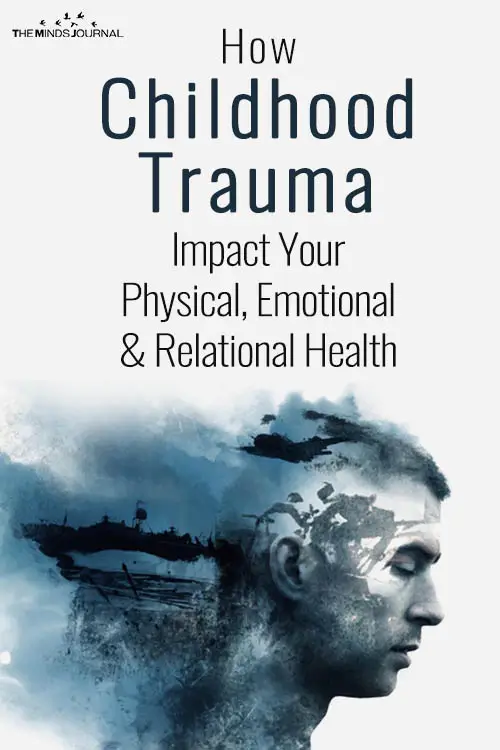
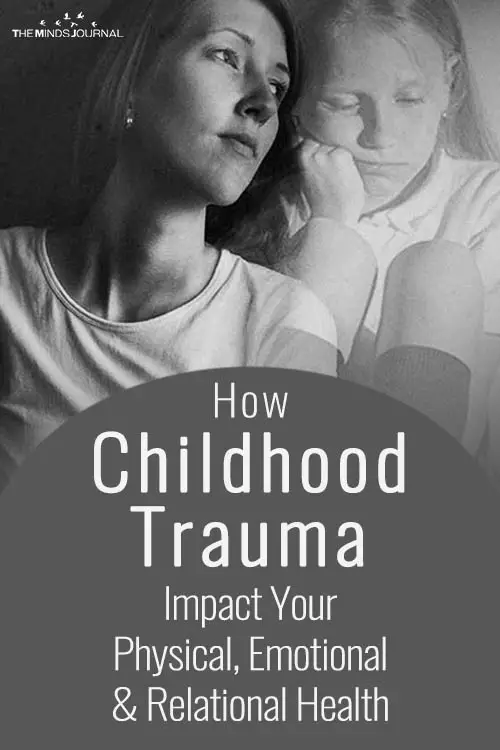
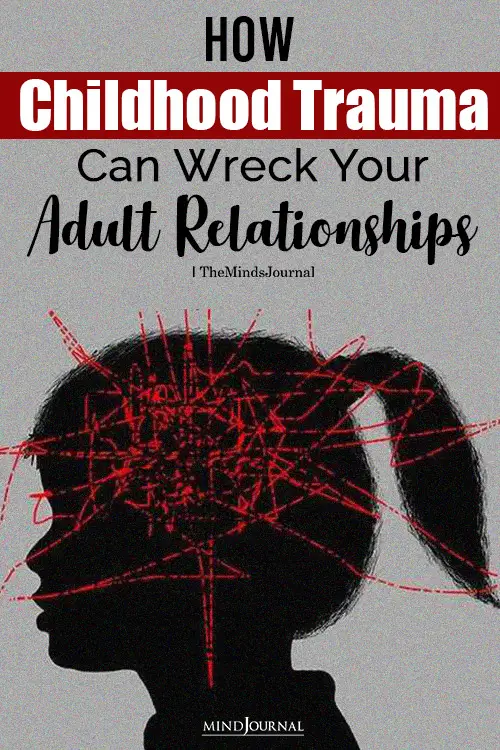
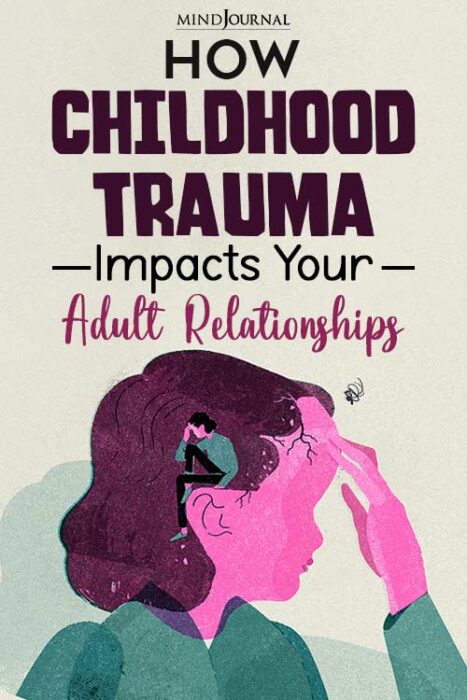
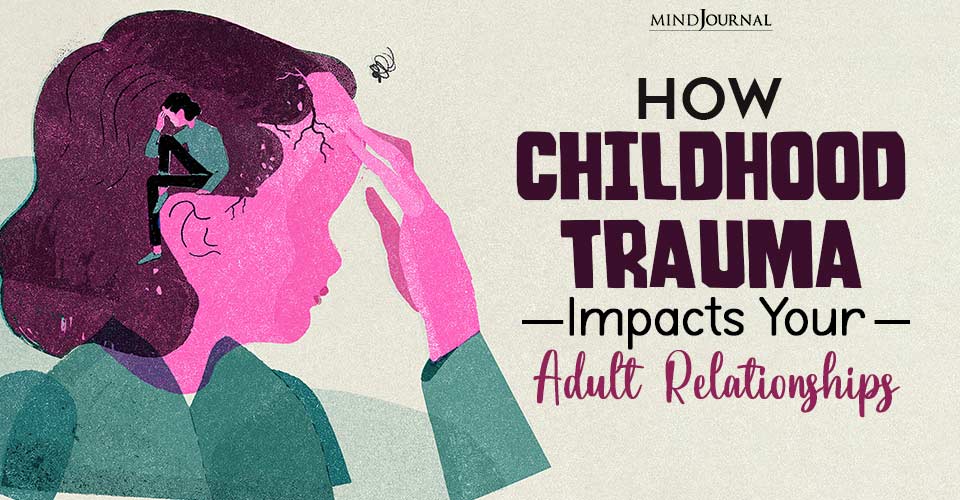





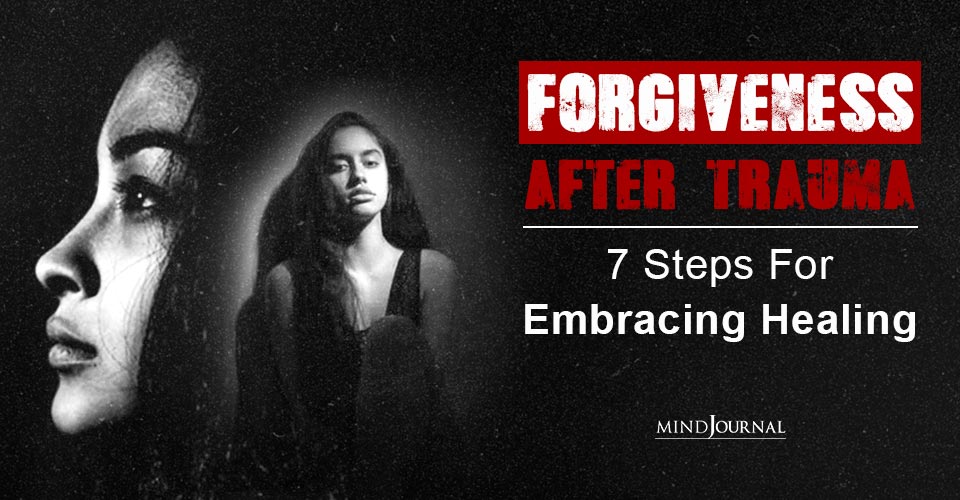

Leave a Reply
You must be logged in to post a comment.